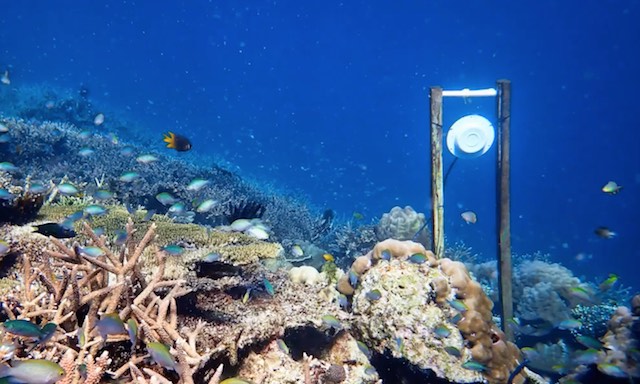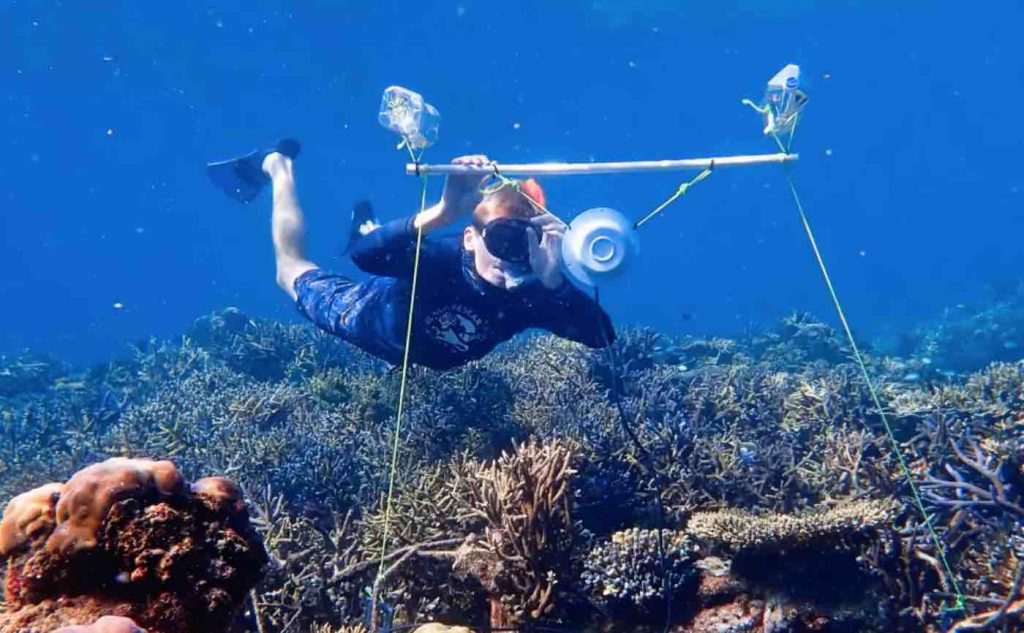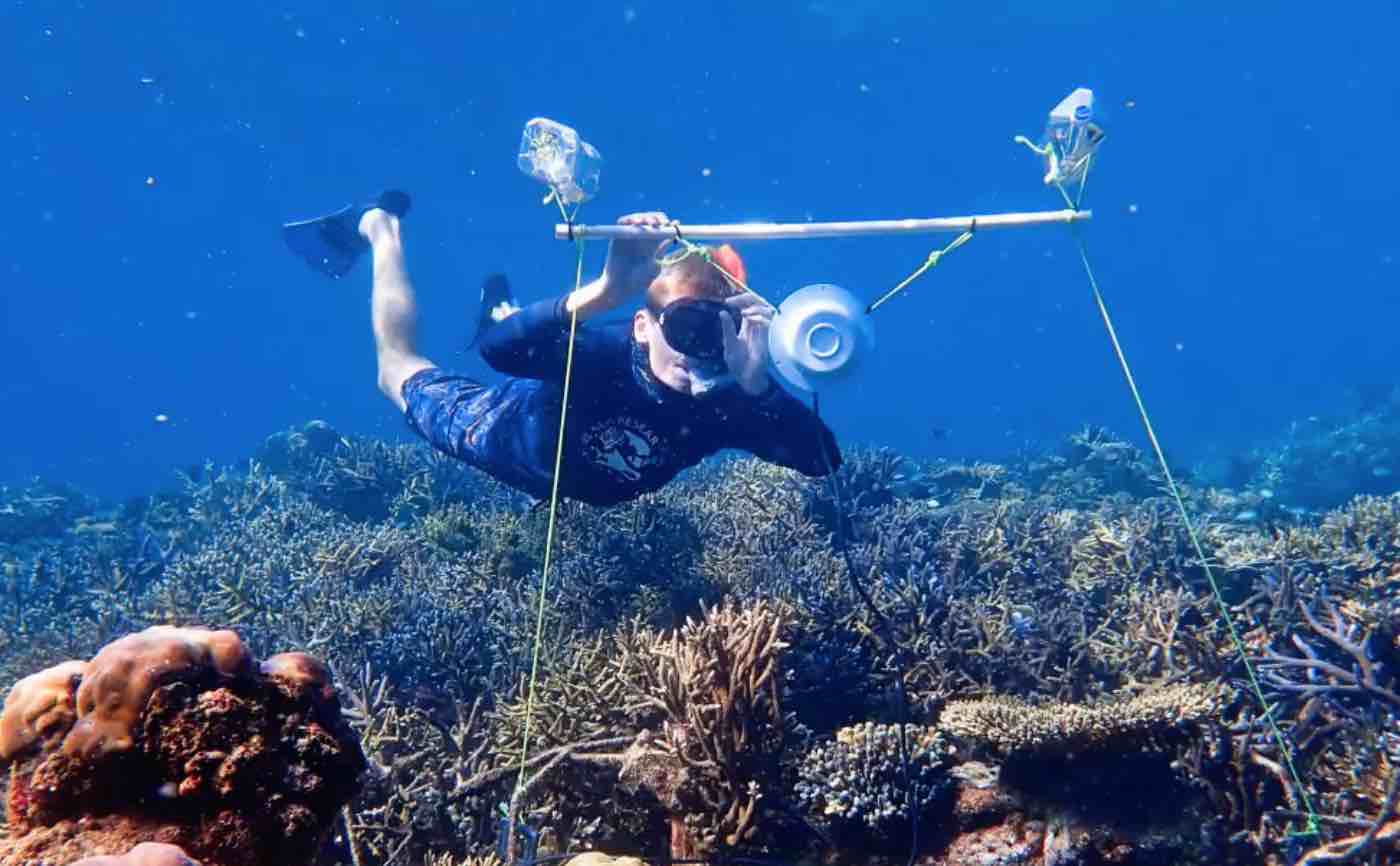
Dying coral might be revived by playing the sounds of healthy reefs via underwater loudspeakers to attract young fish, suggests a new study.
Experts say the “acoustic enrichment” could be a valuable tool in helping to restore damaged coral reefs.
Working on Australia’s recently devastated Great Barrier Reef, the international research team from the Universities of Exeter and Bristol, Australia’s James Cook University, and the Australian Institute of Marine Science, placed loudspeakers underwater playing healthy reef recordings in patches of dead coral.
RELATED: Humpback Whale Population Bounces Back From Near-Extinction—From Just 450, to Over 25,000
They found that twice as many fish arrived—and stayed—at the reefs compared to equivalent patches where no sound was played.
“Fish are crucial for coral reefs to function as healthy ecosystems,” said study lead author Tim Gordon, a PhD student at Exeter University. “Boosting fish populations in this way could help to kick-start natural recovery processes, counteracting the damage we’re seeing on many coral reefs around the world.”
The new technique works by regenerating the sounds that are lost when reefs are quietened by degradation, according to the findings published in Nature Communications.
WATCH: Hope on Horizon for Escaped ‘Russian Spy Whale‘ After Video of Its Rugby Skills Goes Viral
Senior author Professor Steve Simpson, also of Exeter University, explained: “Healthy coral reefs are remarkably noisy places—the crackle of snapping shrimp and the whoops and grunts of fish combine to form a dazzling biological soundscape.
“Juvenile fish home in on these sounds when they’re looking for a place to settle. Reefs become ghostly quiet when they are degraded, as the shrimps and fish disappear, but by using loudspeakers to restore this lost soundscape, we can attract young fish back again.”

Fish biologist Dr Mark Meekan, of the Australian Institute of Marine Science added: “Of course, attracting fish to a dead reef won’t bring it back to life automatically, but recovery is underpinned by fish that clean the reef and create space for corals to regrow.”
The study found that broadcasting healthy reef sound doubled the total number of fish arriving onto experimental patches of reef habitat, as well as increasing the number of species present by 50%.
The researchers said that the diversity included species from all sections of the food web: herbivores, detritivores, planktivores, and predatory piscivores.
Different groups of fish provide different functions on coral reefs, meaning an abundant and diverse fish population is an important factor in maintaining a healthy ecosystem.
Study co-author Professor Andy Radford, of Bristol University, said: “Acoustic enrichment is a promising technique for management on a local basis. If combined with habitat restoration and other conservation measures, rebuilding fish communities in this manner might accelerate ecosystem recovery.
“However, we still need to tackle a host of other threats including climate change, overfishing and water pollution in order to protect these fragile ecosystems.”
MORE: 7-Year-Old Sea Turtle Activist Convinces L.L. Bean to Change Company Policy
Mr. Gordon added: “Whilst attracting more fish won’t save coral reefs on its own, new techniques like this give us more tools in the fight to save these precious and vulnerable ecosystems.
“From local management innovations to international political action, we need meaningful progress at all levels to paint a better future for reefs worldwide.”
(WATCH the university video below)
If This Story Floats Your Boat, Be Sure And Share It With Your Friends On Social Media…




















